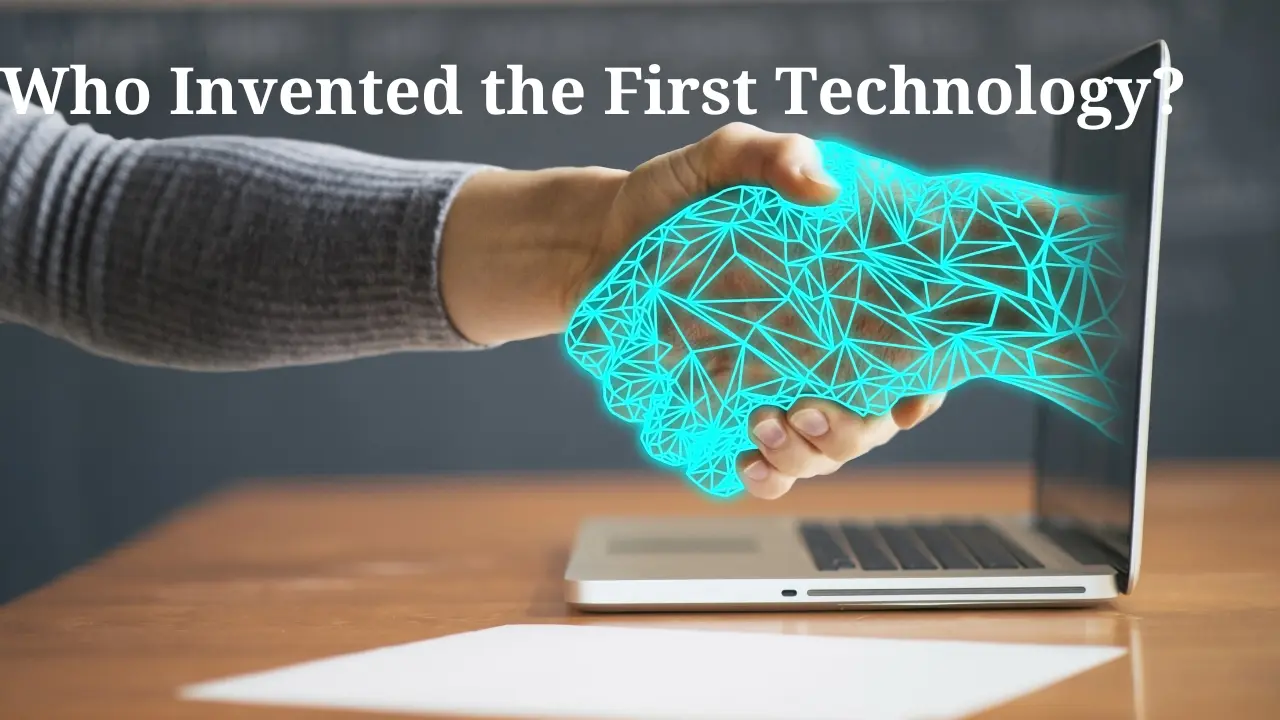Who is the Inventor of Technology? Technology is an integral part of human civilization, touching nearly every aspect of our daily lives. From the smartphones we use to communicate, to the advanced medical tools that save lives, technology has continually transformed how we live, work, and interact. But have you ever wondered where it all began? Who was the inventor of technology? To answer this, we need to look back through history, examining not just a single person, but a series of key innovations and inventors who laid the foundation for what we know as modern technology today.
Defining “Technology”
Before diving into the history, it’s essential to clarify what we mean by “technology.” At its core, technology refers to the application of scientific knowledge for practical purposes, often to solve problems or meet human needs. This broad definition means that technology is not limited to the digital age. It includes everything from the invention of the wheel to the creation of the internet.
Who is the Inventor of Technology?

The Dawn of Technology: Early Human Tools
Long before the modern era, early humans were already using primitive tools. These early technologies, often made from stone, bone, and wood, were vital for survival. Anthropologists believe that the earliest evidence of tool use dates back nearly 2.6 million years.
Early Stone Tools (2.6 Million Years Ago)
The first tools were simple, such as sharp stones used for cutting. These tools, discovered in areas like Ethiopia and Kenya, marked the beginning of humanity’s journey into the world of technology. While these tools were rudimentary, they represented an essential leap in human evolution. The ability to create and use tools allowed early humans to hunt, gather, and protect themselves from predators more effectively.
Fire: The First Major Technological Breakthrough (1.5 Million Years Ago)
The mastery of fire, another early form of technology, radically changed the course of human development. By controlling fire, humans could cook food, stay warm, and defend against wild animals. It also enabled humans to settle in colder regions and extended their waking hours by providing light after dark.
The Wheel (Around 3500 BC)
One of the most significant technological innovations in ancient history is the invention of the wheel, believed to have been invented in Mesopotamia around 3500 BC. The wheel revolutionized transport, agriculture, and even warfare. The concept of a rotating object used to transport goods and people laid the groundwork for numerous future technologies, from carts to the complex machinery of today.
Ancient Technology and the Foundations of Civilization
As civilizations developed, so did their use of technology. Ancient societies like those in Egypt, China, Greece, and Rome were pioneers in various technological innovations that continue to influence the modern world.
Ancient Egypt: Engineering and Medicine
The Egyptians are famous for their monumental architecture, most notably the pyramids. The construction of these massive structures required advanced knowledge of engineering, mathematics, and tools. In addition to engineering, Egypt also made significant advancements in medicine. Ancient Egyptian doctors performed surgeries, set bones, and used herbs and other remedies that laid the groundwork for modern medical practices.
Ancient China: Paper and Gunpowder
China was also home to numerous technological innovations. The invention of paper around 100 BC revolutionized communication and record-keeping, while the invention of gunpowder in the 9th century AD eventually changed the face of warfare forever. The compass, invented in China during the Han Dynasty, was another breakthrough that had a profound impact on navigation and exploration.
Greek and Roman Engineering
The Greeks and Romans were also pioneers of technology. The Greeks developed early mechanical devices, like the Antikythera mechanism, which is believed to be the world’s first analog computer. Roman engineers were masters of construction and infrastructure. Their invention of aqueducts, for instance, allowed them to transport water over long distances, significantly improving urban living conditions.

The Middle Ages: A Period of Innovation
While often seen as a time of stagnation, the Middle Ages were actually a period of considerable technological advancement, particularly in agriculture, warfare, and architecture.
The Heavy Plow and Crop Rotation
Agricultural technology saw dramatic changes with the introduction of the heavy plow and the system of three-field crop rotation. These innovations significantly increased food production in Europe and laid the foundation for population growth and the eventual rise of cities.
Military Technology: The Stirrup and Castles
The introduction of the stirrup revolutionized cavalry warfare. Castles and fortifications also improved during this period, employing sophisticated engineering techniques that made them more formidable in defense.
Printing Press (1440)
One of the most transformative inventions of the Middle Ages was the printing press, developed by Johannes Gutenberg around 1440. This invention made it possible to mass-produce books and pamphlets, dramatically increasing the spread of knowledge. The printing press is often credited with helping to kickstart the Renaissance, a period of great cultural and technological flourishing.
The Industrial Revolution: The Birth of Modern Technology
While there were many technological advancements throughout history, the Industrial Revolution (beginning in the late 18th century) is often seen as the turning point that gave rise to modern technology. This era was characterized by rapid industrialization, mechanization, and the birth of factory systems.
The Steam Engine
The steam engine, developed by James Watt in the late 1700s, was one of the most significant inventions of the Industrial Revolution. It provided the power needed to drive machines in factories and transportation systems, such as trains and steamboats, enabling the rapid expansion of industries and the growth of cities.
Electricity
The development of electricity in the 19th century marked another major milestone in the history of technology. Innovators like Michael Faraday and Thomas Edison were instrumental in harnessing and applying electrical energy. The invention of the lightbulb by Edison in 1879 revolutionized how people lived, extending the day into the night and increasing productivity.
The Telegraph and Telephone
Communication technology took a massive leap forward in the 19th century with the invention of the telegraph by Samuel Morse in 1837, followed by the telephone by Alexander Graham Bell in 1876. These inventions fundamentally changed how people connected, allowing information to travel across vast distances almost instantly.
The 20th Century: A Technological Explosion
The 20th century saw unprecedented technological advancements, particularly in the fields of communication, transportation, and computing.
The Birth of the Airplane (1903)
The Wright brothers, Orville and Wilbur Wright, are credited with inventing the first successful airplane in 1903. Their invention opened the skies to human flight, forever changing transportation, commerce, and warfare.

The Rise of Computers
The development of computers in the mid-20th century was arguably the most transformative technological leap in history. Early pioneers like Alan Turing and John von Neumann laid the theoretical groundwork for computers, while later innovators like Steve Jobs and Bill Gates made personal computers widely accessible.
The creation of the internet in the 1960s by researchers at ARPANET (a project funded by the U.S. Department of Defense) further transformed communication, allowing for instant information sharing across the globe. By the 1990s, the internet became a household technology, giving rise to the digital age.
Space Exploration
In addition to computing, the 20th century also saw the dawn of space exploration. In 1969, NASA’s Apollo 11 mission successfully landed humans on the moon, marking a monumental achievement in both technology and human ambition.
Also read Why Is It Important for Universities to Have Good Technology?
The Digital Age: The Technology of Today
The late 20th and early 21st centuries are marked by the rapid acceleration of digital technology. The rise of the smartphone, artificial intelligence, and cloud computing has radically changed the way we live and work.
The Smartphone
The smartphone, first popularized by Apple’s iPhone in 2007, represents a convergence of several different technologies, including the telephone, camera, and internet browser. Today, smartphones are used for everything from communication and entertainment to shopping and navigation.
Artificial Intelligence (AI)
Artificial intelligence, once a science-fiction concept, is now a growing field of technology. AI systems can now perform tasks that previously required human intelligence, such as recognizing speech, driving cars, and even diagnosing medical conditions.
Renewable Energy Technologies
As concerns about climate change grow, renewable energy technologies, such as solar power and wind energy, are becoming increasingly important. These technologies are not new, but recent advancements have made them more efficient and affordable, providing an alternative to fossil fuels.
Conclusion
So, who is the inventor of technology? The answer is that technology, as we know it, doesn’t have a single inventor. Instead, it is the result of countless individuals and civilizations building upon each other’s discoveries over thousands of years. From the first stone tools to the latest innovations in AI, technology is a collective invention, constantly evolving to meet new challenges and improve human life. Every breakthrough—whether it’s fire, the wheel, or the smartphone—has contributed to the vast technological landscape we navigate today.
As we look to the future, the next great inventor might not be a single person, but a collaboration of minds working together across the globe, united by a common goal to push the boundaries of what’s possible.




